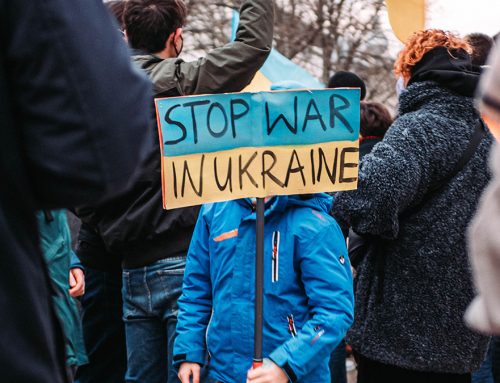Monday’s news that a man in his twenties had died on our streets again as a result of violence has shocked many people. There has been added shock as the victim was attacked in broad daylight. This man died as a result of a stabbing in the town of Downpatrick.
Much has and will be said of this in the coming days as the PSNI have announced they are now following this up as a murder investigation and a man has been arrested as a result. Where do we, as a community, go from here?
This act has been rightly condemned, statements of solidarity with the victim’s family made, and comments that this act is not reflective of the local community expressed. These are all important starting points, but they must be just that; a starting point. This starting point must lead each of us to asking how we respond to this brutal act of violence and if we truly stand in opposition to violence.
It is this writer’s view that there is nothing natural about violence. It is this writer’s view that rather it is nonviolence that is the natural human inclination. The practice of nonviolence is one which will uplift; it ennobles, and empowers ourselves and those around us. A spirit of nonviolence is one which will foster within the individual a recognition of our shared humanity, and a respect for life. Nonviolence offers us a higher sense of humanity. It is not an act of passivity but is very much an active and participatory endeavour of the highest ideals. Through participation in nonviolence an individual or collective organisation is able to see who they truly are and who their neighbour truly is as well. This is the natural human inclination.
By contrast an act of violence goes against our natural human inclination. Consider for a moment, when an act of violence takes place perhaps in some small way or on a colossal scale, we try to make sense of the violence. If you have ever been bullied as a child, you may be able to identify with this; I certainly do. “Why is this happening to me? What did I do wrong?” On a larger scale, when the planes hit the Twin Towers in 2001, we sat around television screens around the world, each of us asking, “Why? How?” Violence simply does not make sense to the human psyche or the human soul. It is one thing to try and understand the violence, its motive and place of origin, which is not only a noble act but is also an essential one.
However, understanding the violence does not mean tolerating it. The moment we attempt to rationalise the violence is when we excuse the violence and reduce its impact. This is in direct contravention to our shared natural law. To put this in context, let us look at what violence actually is.
Etymologically, our first understanding of violence came from the Sanskrit hiṃsā. The definition of this is not a simple one, but complex. The meaning of hiṃsā is to injure another through intention of malice, verbal antagonism, or physical injury. It is summarised as being a violation of another. From the sense of violate we get our modern word; violence. If a violation is the contravention of a formal rule or the treating of something or someone with disrespect or harm, then violence is by its history and definition the violation of the natural human law and the discarding of the humanity of another individual or group.
Conversely, the definition of nonviolence is not so much the absence of violence but is rather a respect for all living things, a strength, discipline and practice of the highest ideal.
These definitions are important as it places the act that has been perpetrated within an appropriate context. The definition does not differentiate between varying levels of violence or if the act has been carried out in response to something else. There is simply violence and there is nonviolence. However, there are acts of violence which shock us more than others and are far more difficult to comprehend. Thus, as violence is perpetrated and intensified, the response that is required of an individual or grouping must also reflect this. It must also be noted that violence that results as an act of self-defence is open to question and may not meet the true test of the definition derived from hiṃsā as the individual did not intentionally seek to cause harm.
This brings us to the real crux and challenge of true nonviolence. How do we tolerate violence? Do we tolerate violence in our thoughts and words? Is it ever ok to have just a little violence? These are important questions for each individual to ask and ones we must address collectively. We are after all, not just a collection of individuals that exist exclusively to all others. Just as violence does not appear out of the aether. No, we are a society, often with a sense of shared identity and purpose. We have a shared humanity.
The great thinkers in history who have expounded on this, such as Dr King, who spoke so prophetically about the interrelated and interdependent nature of life. “It really boils down to this: that all life is interrelated. We are all caught in an inescapable network of mutuality, tied into a single garment of destiny. Whatever affects one directly, affects all indirectly.”
Therefore, in our response to this most recent and callous act of violence we must challenge ourselves to go beyond the narrow scope of this one incident. We must recognise that in committing this act of violence against one individual an act of indirect violence has been committed against the wider community, and so a collective healing must be allowed to take place.
How do we do this? We must first begin by recognising the hurt, recognising the trauma, and how we feel about it. We may have been shocked into anger or pain or even apathy. These feelings must be acknowledged, heard, and potentially shared with someone we trust. Knee jerk reactions will not be helpful. As we endure these most human of feelings, we are made stronger and even, more human.
There can be no retaliation, for this will only foster and permit violence to breathe and permeate. We must recognise the wound that has been inflicted upon that individual and the wider community, understand its origin and the pain that many will be left with. Therefore when the planes hit the Twin Towers in 2001 the world was left in shock. It affected all of us.
Right now, a community is in shock. The shock will subside, but where will we be following that? Do not forget how you feel right now. If we can recognise that this act of violence was a violation of the natural order, then this will present us with an opportunity to foster and permit a growing sense of nonviolence to address the malice that may be within our own hearts and minds and words; that will reflect in our actions as we seek to heal the divisions that exist within our society and seek the highest ideals.
Like fear, violence only breeds further violence, however, so too does love. In seeking the highest ideals of love and empathy this will only influence others to also seek these ideals. May those who have suffered and died at the hands of violence rest in peace and may we who remain unite in the shared purpose of seeking the highest ideals and recognise our shared humanity.
Dominic O’Reilly



